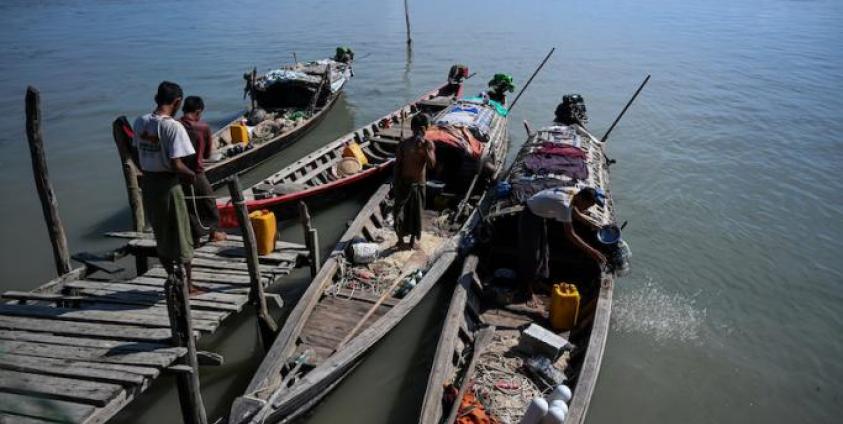In 2018, China signed an MoU with Myanmar to establish the China-Myanmar Economic Corridor (CMEC). In January 2020, during a two-day visit by President Xi Jinping to Myanmar, 33 projects were identified to operationalize CMEC. This included development of Kyaukphyu Port and Special Economic Zone (KPSEZ), Myanmar’s first deep-sea port in Rakhine state. The project is to be developed by the Kyaukphyu Special Economic Zone Deep Seaport Co. Ltd., a joint venture between the Chinese consortium CITIC Myanmar Port Investment Limited and the KPSEZ management committee.
Despite Myanmar’s political strife after a military coup in February 2021, China continues to fill an immense economic gap left as many western benefactors fled. But it is not all about Chinese benevolence to Myanmar. Beijing considers the KPSEZ and the deep sea-port especially vital to the BRI, as they will give China direct access to the Indian Ocean, so allowing Chinese trade to bypass the congested Strait of Malacca near Singapore, while boosting development in landlocked Yunnan Province, which borders Myanmar. In Myanmar, China sees an opportunity to significantly expand its sea power beyond its influence in the Pacific region.
Myanmar Survey Research (MSR) has been conducting environmental and social impact assessments for the US$1.3 billion Kyaukphyu SEZ, and the assessment is scheduled to be completed in July 2023 after which the construction will commence. The deep sea-port project will be implemented in three phases and is estimated to cost US$7 billion.
However, the commencement is bound to face resistance. Activists claim that the deep sea-port is expected to seriously disrupt the livelihoods of local fishermen as fish stocks have been seriously depleted. On October 27, underlining the concern, activists organized a campaign against the project in the Thanzit River near Maday Island, where the deep sea-port is stated to be built. The campaign demanded that local fishermen be respected, and that development of the deep-sea port project be halted immediately as it was initiated without the consensus of local residents and has not addressed the grievances of local fishermen and residents.
An oil and gas pipeline project that was also backed by China and implemented on Maday Island only did harm and brought no good for local fishermen, said the spokesman for the Centre for Peace and Development, a civil society organization monitoring the Kyaukphyu Special Economic Zone (SEZ) project, to which the deep sea-port is closely tied. The government ignored fishermen’s demands in 2017. As a result, they lost 50 percent of their fisheries. Now they have to rely only on the remaining 50 percent to make a living.
The asymmetric relationship between China and its smaller and troubled BRI partner Myanmar is expected to generate a range of political risks for stakeholders. The Kyaukphyu deep sea-port project and associated Special Economic Zone located in Myanmar’s troubled Rakhine state is investigated as a case study of risks on the Belt and Road. Myanmar must be wary of how China will throw its weight around in future, which underlines the need to better understand risks that accompany BRI-related projects.








